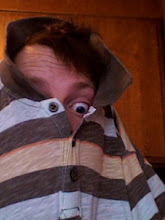Truth be told, I didn't make it to class on Tuesday, but at least it gave me the chance to utilize Rio's Smartpen recording!
Although the use of William as a first or middle name seems eerily common throughout my more recent ancestors (including my father and grandfather), the genealogical roots are pretty tangled. I remember something about a name change not taking place; supposedly we would be the Wilsons otherwise. William Wilson has a nice alliterative ring to it. Anyways, regardless of my dad's fanciful family map-work, I'm not the distant relative of the Lord Raglan mentioned in class. Eventually, Raglan Castle came into the possession of the Somersets of the House of Beaufort, of which the hero-theorizing 4th Baron Raglan, Fitzroy Richard Somerset, was a member.
Here's a cool link to Lord Raglan's hero pattern, with point amounts given to heroes of different traditions and mythologies (from Krishna to Harry Potter):
On an almost completely different note, one of the songs played in class was the folk traditional "(I Am A) Man of Constant Sorrow". While the version from O Brother, Where Art Thou? is great, there's a ton of other recordings made over the last century, before and after the Stanley Brothers popularized it in the 1950s - including one by Bob Dylan. One of my favorite recordings is by Roscoe Holcomb from An Untamed Sense of Control, who hauntingly sings the tune a cappella. If you're interested in folk music, I've uploaded it to a file hosting site. Follow the link below.


No comments:
Post a Comment